An eviction process begins with the landlord giving notice to the tenant to vacate the property. There are tenant remedies for violations such as late rent and noncompliance with the lease. The State mandates a tenant be given notice and a right “to cure” the issue within a specific timeframe. If the tenant fulfills the obligations, they have “cured” the issue. If not, the landlord will be able to file a complaint with the local housing court.
Table of Contents
- How to Evict a Tenant: By State
- The Eviction Process (Step-by-Step Guide)
- Eviction Notices: By State
- Where to File: By State
- Glossary (Eviction Terms)
- Common Tenant Defenses
- Frequently Asked Questions (FAQs)
How to Evict a Tenant: By State
- Alabama
- Alaska
- Arizona
- Arkansas
- California
- Colorado
- Connecticut
- Delaware
- Florida
- Georgia
- Hawaii
- Idaho
- Illinois
- Indiana
- Iowa
- Kansas
- Kentucky
- Louisiana
- Maine
- Maryland
- Massachusetts
- Michigan
- Minnesota
- Mississippi
- Missouri
- Montana
- Nebraska
- Nevada
- New Hampshire
- New Jersey
- New Mexico
- New York
- North Carolina
- North Dakota
- Ohio
- Oklahoma
- Oregon
- Pennsylvania
- Rhode Island
- South Carolina
- South Dakota
- Tennessee
- Texas
- Utah
- Vermont
- Virginia
- Washington
- West Virginia
- Wisconsin
- Wyoming
The Eviction Process (Step-by-Step Guide)
- Step 1 – Give Notice to the Tenant
- Step 2 – Communicate with the Tenant
- Step 3 – Fill in Court Forms
- Step 4 – File at the Court
- Step 5 – Serve the Tenant
- Step 6 – Wait for Tenant’s Response
- Step 7 – Attend Trial Hearing
- Step 8 – Tenant is Forcibly Removed
Step 1 – Give Notice to the Tenant
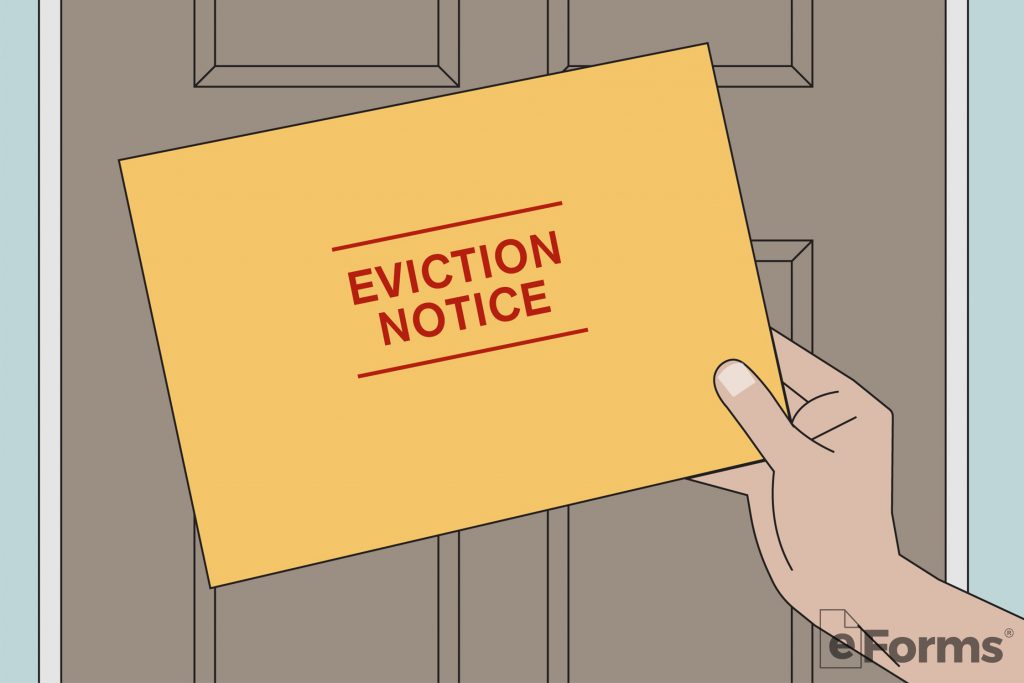
An eviction notice must be given, in nearly every State, before eviction proceedings may begin. The landlord must first complete the 1-page notice and sign. Depending on the state, notice may be delivered personally or be sent by mail. Depending on State law, it may be slid or posted to the tenant’s door.
Common types include:
- Non-Payment of Rent – The most common eviction notice for the late payment of rent.
- Non-Compliance (lease violation) – For any violation of the lease other than late rent.
- Month to Month Tenants – To terminate a month to month tenancy. Commonly requires a 30-day notice.
- Other – Depending on State laws this can be illegal activity, damage to the property, or other severe violations.
The attached Certificate of Service should be signed by the landlord, which indicates the onset of the notice period.
Step 2 – Communicate with the Tenant

Now that notice has been issued, the landlord should get a response from the tenant and the parties can negotiate.
If the tenant is seeking to remain on the property and ignore the notice, then the landlord must wait for the notice period to expire before filing eviction proceedings.
Step 3 – Fill in Court Forms
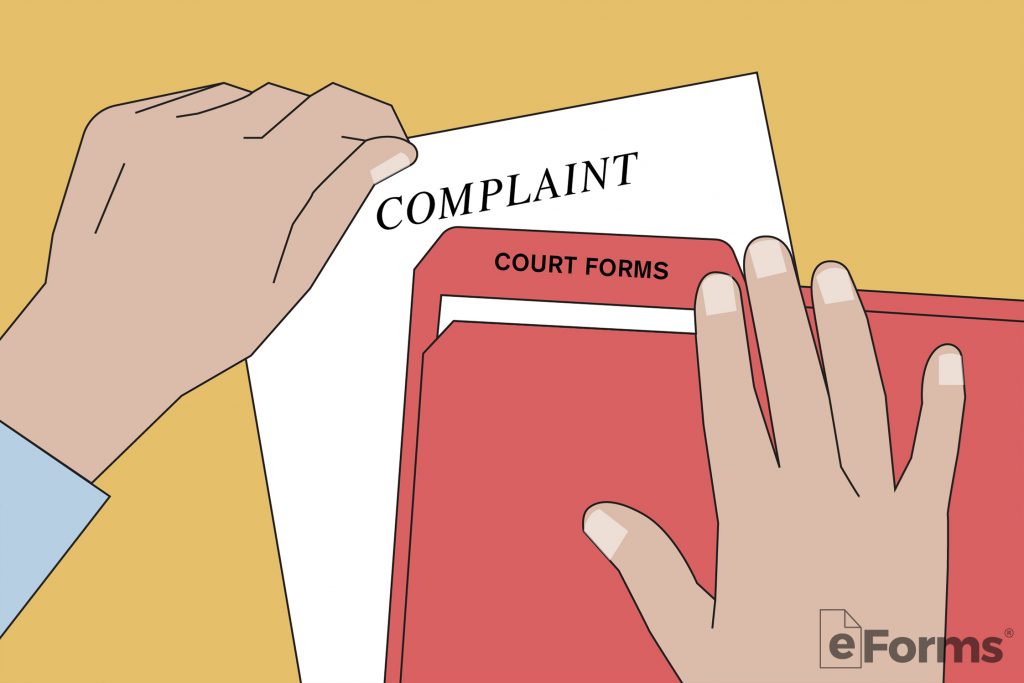
Most commonly, the landlord will be required to file:
- Complaint;
- Summons;
- Civil Cover Sheet; and
- A copy of the eviction notice served to the tenant.
Most courts will ask the petitioner to make 3 copies of the forms.
Step 4 – File at the Court

File the eviction forms at the local court. Contact the clerk beforehand to obtain the filing fee, which can be paid by check. The clerk will review the submitted forms and give a filed copy of the summons to the landlord.
Step 5 – Serve the Tenant
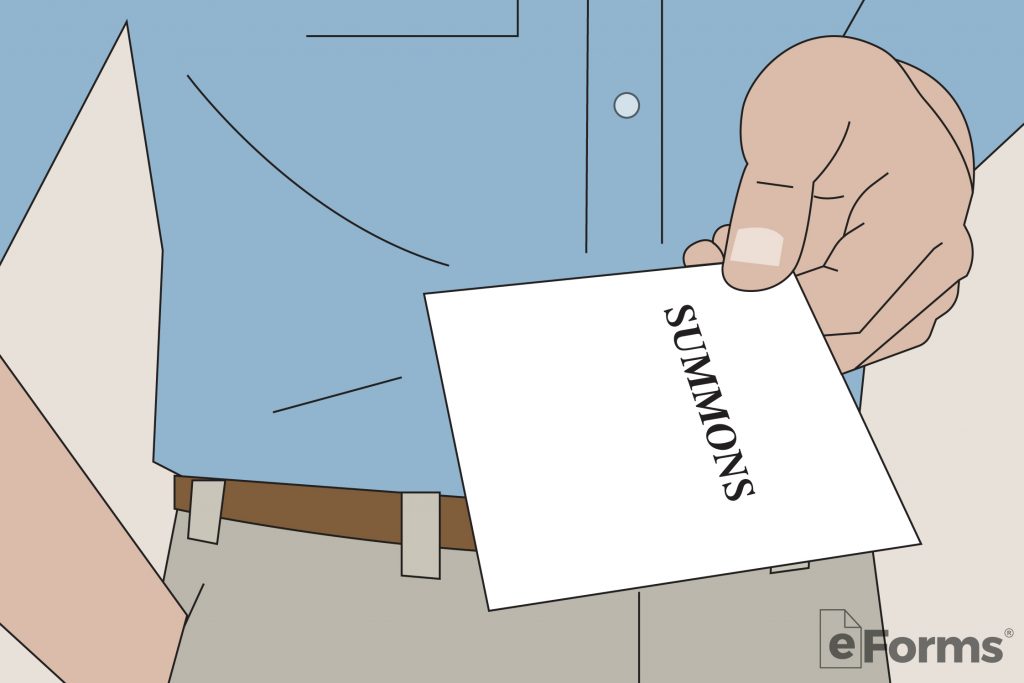
The tenant must be served the summons issued by the court and any other required documents. The court will usually require a process server to ensure the tenant received the documents or be sent via USPS certified letter.
Step 6 – Wait for Tenant’s Response

After being served, the tenant will have a period of time to respond to the court with an Answer form, commonly around 20 days. The court will then schedule a trial date.
Step 7 – Attend Trial Hearing
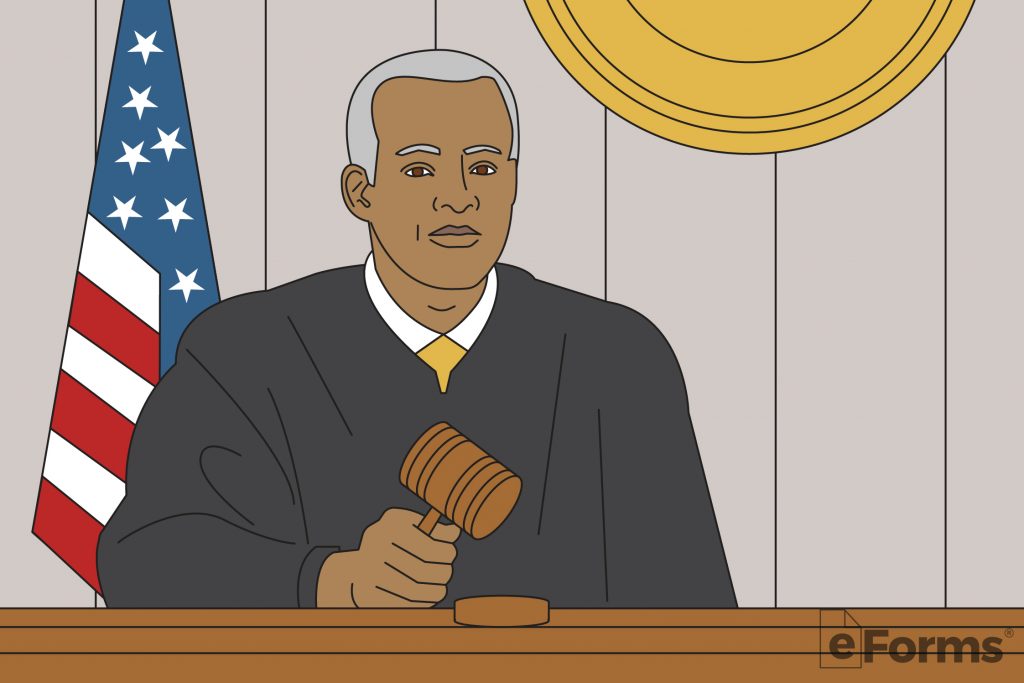
Both the landlord and tenant will be given an opportunity to present their case to the Judge. After each party gets their say and answers the Judge’s questions, a ruling will be given deciding in either party’s favor.
If the landlord wins, a Writ of Possession may be issued. The Writ will be issued to the landlord by the court and should be filed with the local county Sheriff to physically remove the tenant from the premises.
Step 8 – Tenant is Forcibly Removed
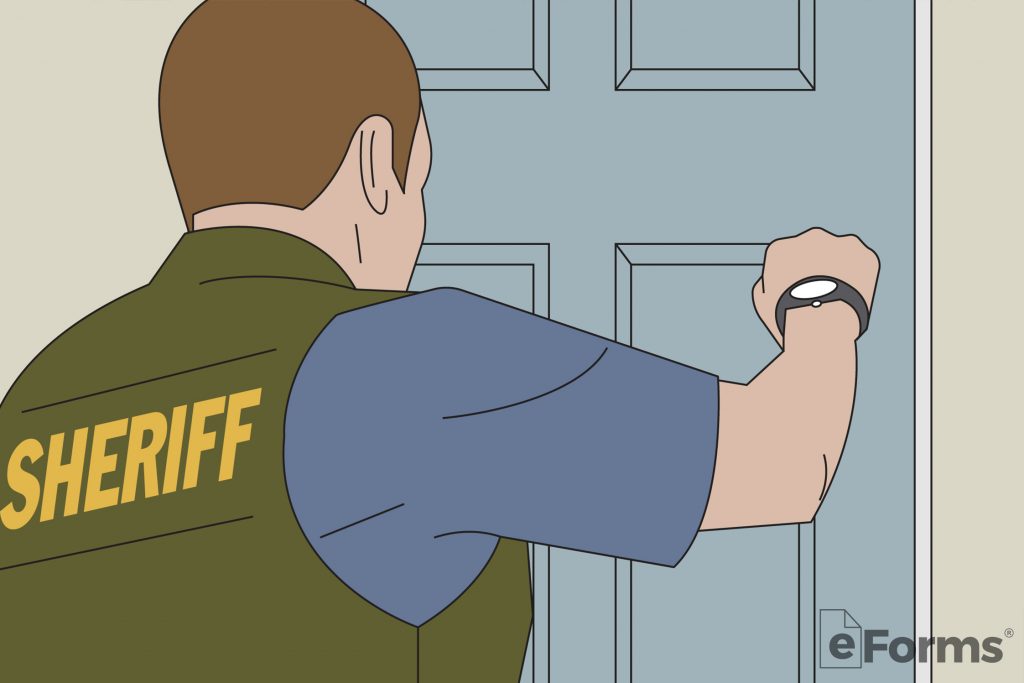
The Sheriff will either knock on the tenant’s door and remove them from the premises or wait until they leave and lock them out. If the tenant is locked out, they will need to contact the landlord to obtain their possessions.
Eviction Notices: By State
Use any of the notices below to inform a tenant of a lease violation and begin the eviction process.
Where to File
Use the links below to find out where to file an eviction lawsuit and the filing fees.
Glossary (eviction terms)
- Answer
- Complaint
- Unlawful Entry and Detainer
- Notice to Quit
- Process Server
- Summons
- Writ of Possession
Answer – Provided by a local housing court and allows a tenant to write and submit their defense to the eviction proceedings.
Complaint – Also known as a “petition” and is made by a landlord to a local housing court to submit and file an eviction case.
Forcible Entry and Detainer – Also known as an “unlawful detainer” and is the official title given to an eviction proceeding.
Notice to Quit – Official notice given by a landlord to a tenant that they have violated the lease
Process Server – A person hired to hand-deliver court documents to defendants and let them know a case has been filed against them.
Summons – Issued by a local court and must be “served” to the defendant.
Writ of Possession – Or “Writ of Judgment” is the court order stating that the landlord has the right to forcibly repossess the property from the tenant. This is completed by giving the Writ to the local county Sherriff’s office.
Common Tenant Defenses
A tenant can counter an eviction by presenting a number of tenant defenses, some of which may include:
- Landlord’s failure to maintain habitable premises;
- Incorrectly filed court documents;
- Landlord’s failure to make good on repairs;
- Landlord’s failure to provide heat or water;
- Harassment or retaliatory measures by the landlord in attempt to collect rent or remove the rent; and
- Self-help procedures such as changing locks.
Frequently Asked Questions (FAQs)
- How long does an eviction take?
- Does an eviction go on my Credit Report?
- Can you Remove an eviction from a Credit Report?
- Can a Writ of Possession be stopped?
How long does an eviction take?
Depending on the jurisdiction, an eviction can take anywhere from 45-180 days depending on the State.
Does an eviction go on my Credit Report?
Yes, and it can affect the report by up to 300 points. An eviction stays on a tenant’s record for 7 years. Therefore, it’s best to move out even if rent hasn’t been paid to avoid a civil court judgment that will appear on an individual’s credit report.
Can you Remove an eviction from a Credit Report?
Yes, but it is difficult. A person would have to petition the court the record was filed and detail why the record should be removed from public record. Depending on the court, simply showing the landlord has been reimbursed for all monies owed may clear the record.
Can a Writ of Possession be stopped?
No. A Writ of Possession is the judgment granted by a court to allow a Sheriff to enter the property and lock the tenant out. Once the tenant has been locked out, they will have no way to get back into the premises without contacting the landlord to obtain their possessions.